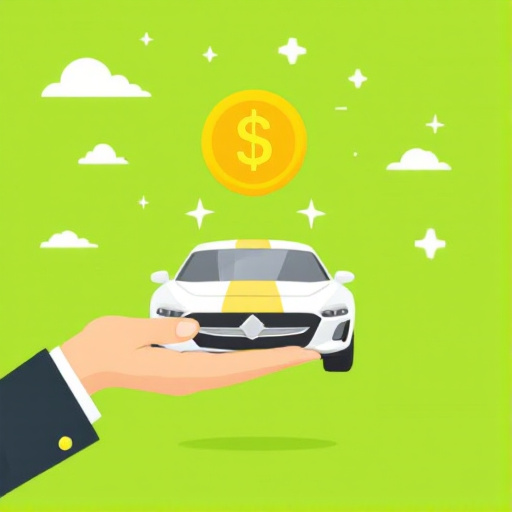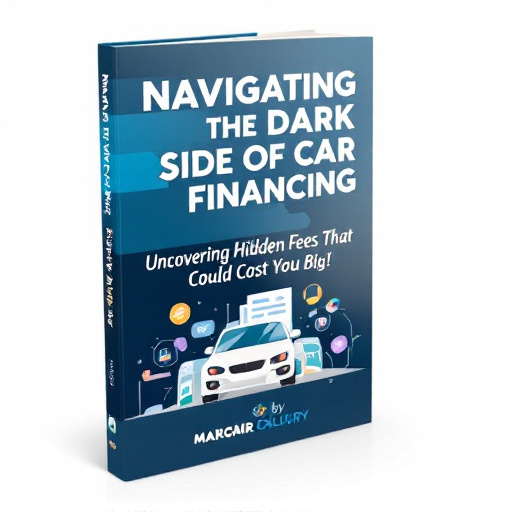Related Articles
- Unveiling the Unthinkable: How Your Social Media Posts Could Impact Your Car Insurance Premiums
- "From Showroom to Social Media: How Dealerships are Becoming Digital Storytellers in 2023"
- "From Showroom to Stream: The Rise of Virtual Reality Test Drives at Dealerships"
- Revving Up Sales: How Virtual Reality is Transforming the Dealership Experience for Shoppers and Sellers Alike
- Selling Experiences: How Dealerships Can Transform into Immersive Automotive Entertainment Hubs
- The Surprising Impact of Your Credit Card Habits on Car Financing: What You Didn't Know!
The Surprising Impact of Your Credit Card Habits on Car Financing: What You Didn't Know!
The Surprising Impact of Your Credit Card Habits on Car Financing: What You Didn't Know!
Your credit card habits can significantly influence your ability to finance a car, often in ways you'd never expect. From credit scores and payment history to interest rates and loan offers, the relationship between your plastic spending and car financing is multifaceted and crucial to understand.
The Connection Between Credit Cards and Credit Scores
Let’s kick off with one of the most significant factors: your credit score. Did you know that 30% of your FICO score—which many lenders use as a benchmark—comes from your credit utilization ratio? This ratio measures how much credit you’re using compared to your total available credit. For example, if you have a $10,000 credit limit and you consistently use $3,000, your credit utilization would be 30%. Lenders generally prefer to see a utilization rate below 30%. If you’re not careful, high credit card balances can wreak havoc on your ability to secure favorable car financing terms.
Payment History: The Bottom Line
Your payment history accounts for approximately 35% of your credit score, making it the most significant factor in determining how creditors perceive you. Late payments on credit cards can negatively impact this aspect of your credit score, affecting everything from your car financing options to the interest rates you'll be offered. Research shows that a single missed payment can lower your credit score by as much as 100 points! (FICO)
A Case Study: Mia's Journey to Car Ownership
Meet Mia, a spirited 25-year-old who was ecstatic to buy her first-ever car. After finally saving up enough for a down payment, she discovered her credit score was lower than she thought—thanks largely to infrequent and late payment of her credit card bills. Despite her decent income from a full-time job, she found herself paying significantly higher interest rates on her car loan than her financially-savvy friends. She learned this lesson the hard way, and now ensures that her credit card payments are on time every month.
Debt-to-Income Ratio: A Hidden Factor
When evaluating your ability to take on a car loan, lenders often look at your debt-to-income (DTI) ratio in addition to your credit score. This metric calculates how much of your income goes towards paying off existing debts—in which credit card debts play a notable role. A high DTI can indicate to lenders that you might struggle to accommodate additional payments. Ideally, your DTI should be below 36%, but different lenders may have varying requirements.
Let’s break it down. If you earn $4,000 a month and have $1,200 in monthly debt obligations, that’s a DTI of 30%. However, if we multiply that number with a hefty credit card balance that you only make minimum payments on, it could push your DTI closer to 40%. This is a red flag for lenders!
The Interest Rate Tightrope
Now that we have your credit score and DTI in mind, let’s talk about interest rates. The difference of just a couple of percentage points can mean the difference between paying hundreds, or even thousands, more over the life of your loan. According to Bankrate, borrowers with excellent credit (740+) can receive rates as low as 3%, while those with poor credit (below 580) might face rates exceeding 10%!
Imagine this scenario: If two people decide to finance a car for $30,000 over five years, the person with a 3% interest rate will pay $543 a month, totaling about $32,579 by the end. Meanwhile, someone with a 10% interest rate may be stuck with a monthly bill of $635, adding up to nearly $38,100, making the financial burden considerably heavier. That’s a staggering difference of about $5,500!
Beware of Secured Credit Cards
Interestingly, secured credit cards can have a dual effect on your credit score and car financing options. While they can help you build or improve your score when used responsibly, they're also a reminder that lenders often scrutinize your credit card habits cautiously. On the flip side, if you misuse them—say, by racking up debt or missing payments—your chances of financing a car could dim significantly.
Understanding the Approval Process
Every lender has a unique approach to evaluating your credit. That’s why it’s essential to educate yourself on the various types of lenders, including banks, credit unions, and online lenders. Did you know that credit unions typically offer lower rates than large banks because they are not-for-profit institutions? They may also consider your credit card habits more favorably if you’re a member. A recent study found that customers who secured their car loans through credit unions saved an average of $1,000 compared to traditional banks.
Credit Cards and Your Financing Timeline
Experts suggest that you should refrain from making any major credit card purchases in the six months leading up to your car financing application. Why? Well, applying for new credit can pull your score down, making you seem riskier to potential lenders. This is particularly true for credit cards, as each application counts as a hard inquiry on your credit report. Instead, it’s best to focus on paying down existing balances and maintaining low utilization rates during this critical time.
Saving for Your Down Payment
Credit cards can be vital tools for budgeting and managing expenses, but they can also tempt you into overspending. People who do not keep a close eye on their credit card spending may find themselves in debt, thus jeopardizing their ability to save for a down payment. Let’s say you’re hoping to put down 20% on a $25,000 vehicle, requiring a solid $5,000 in savings. If your credit cards are maxed out and you’re stuck paying only the minimums, reaching that goal might take much longer than planned, ultimately delaying your purchase.
Some Humor to Lighten the Mood
Let me lighten the mood with this: Why did the credit card go to therapy? Because it had too many outstanding issues! In all seriousness, managing your cards wisely can help you avoid unnecessary stress later on.
Also, remember, it's not all about credit cards. Responsible use of debit cards and budgeting can also lead to better car financing options. Although debit cards don't impact your credit score, managing your bank accounts diligently will help accumulate the necessary down payment.
Demystifying Terms and Conditions
Understanding the subtle nuances of car financing agreements is crucial. Some lenders may check your credit card balances when determining your terms, which can be a shock if you’re underestimating your financial obligations. If you’re carrying a significant balance on your credit cards, those numbers might unintentionally tip the scales against you when seeking car financing.
Bonus Tip: Credit Freeze vs. Credit Monitoring
Thinking about how to improve your credit? You might consider freezing your credit or opting for a credit monitoring service. A credit freeze prevents creditors from accessing your report, while monitoring lets you track changes in real time. Although freezing your credit won't directly impact your car financing, it’s good practice to ensure no unexpected charges appear when you’re gearing up for a purchase!
The Millennial Approach: Rethink Your Spending
If you’re part of the millennial generation (and even those Gen Z trailblazers!), shifting to a more mindful approach to credit card usage can yield incredible benefits. A 2022 survey found that nearly 60% of millennials believe using digital finance tools has improved their budgeting skills. By utilizing budgeting apps or even spreadsheets, it’s possible to keep your credit card spending in line while still enjoying the convenience of a credit card.
Wrapping It Up
In conclusion, the surprising impact of your credit card habits on car financing is a lesson in financial responsibility and awareness. If you know the ins and outs of how your credit cards work—payments, balances, ratios, and history—you can navigate car financing more effectively. Make smart usage of credit, keep those balances low, and you’ll be well on your way to snagging that dream car at a rate that won’t break the bank!
Remember Mia's story? You don’t want to find yourself stuck paying exorbitant rates when you could achieve better terms by just being mindful of your credit card activity. The bottom line: treat your credit responsibly, and it will repay you handsomely when you seek financing for your next car!




